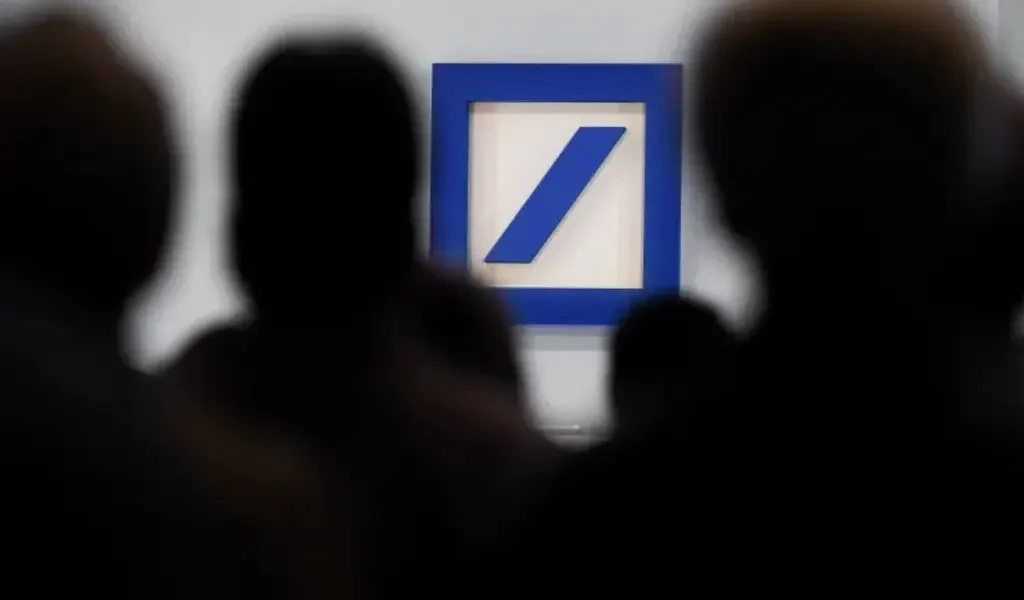(CTN News) – Market panic over European banking stability led to a drop in Deutsche Bank shares Friday while insurance costs spiked.
Yet many analysts couldn’t figure out why the bank that’s posted 10 consecutive quarters of profit and has strong capital and solvency position was the next target of a market in “seek and destroy” mode.
Investors are worried about contagion after UBS rescued Credit Suisse after Silicon Valley Bank collapsed. This concern was heightened by further monetary tightening from the Fed on Wednesday.
The Credit Suisse rescue deal, brokered by Swiss authorities, was expected to calm investor fears about Europe’s banks’ stability.
Credit Suisse’s 167-year-old institution collapsed, and creditor hierarchy rules got turned upside down to wipe out 16 billion Swiss francs ($17.4 billion) of its extra tier-one bonds, so the market wasn’t convinced that the deal would hold things together.
Deutsche Bank restructured its business in recent years to reduce costs and improve profitability. 5 billion euros ($5.4 billion) was the lender’s annual net income in 2022, up 159%.
He said it has “thoroughly reorganized and modernized its business model and is a very profitable bank,” adding those who speculate about its future have no basis to do so.
I just don’t think it’s scary.
A lot of people are worried about Deutsche Bank’s exposure to U.S. commercial real estate and its derivatives book.
According to Autonomous, a subsidiary of AllianceBernstein, the concerns are “well known” and “not very scary,” pointing to the bank’s “robust capital and liquidity positions.”
In a note, Autonomous strategists Stuart Graham and Leona Li said they underperform because they think there are more attractive equity stories elsewhere in the sector (i.e. relative value).
Deutsche Bank does not pose a risk to our assets or viability. To be clear, it is not the next Credit Suisse.”
Autonomous forecasts a return on tangible book value of 7.1% for 2023, rising to 8.5% by 2025, unlike the Swiss lender that is struggling.
Liquidity gets a ‘fresh and intense focus’
JPMorgan says the collapse of Credit Suisse was caused by three things. In the wake of the SVB collapse, the market’s “fresh and intense focus on liquidity risk” had eroded confidence in management’s abilities, thanks to a string of governance failures.
Credit Suisse argued, however, that the comparison with Deutsche Bank illustrated the importance of the environment in which it was trying to overhaul its business model.
While the German bank had headline pressure and governance problems, we think it started with a far lower quality franchise, which, though less levered today, still commands a relatively high cost base today. JPMorgan strategists said in a note Friday that it has relied on its FICC (fixed income, currencies, and commodities) trading franchise to generate organic capital and boost credit ratings.
They said that no matter how good the franchise is, such institutions “rely entirely on trust.”
“Where Deutsche Bank governance fumbles didn’t cost the bank anything in franchise losses, Credit Suisse’s were punished with investor outflows in Wealth Management, causing what should have been the bank’s ‘crown jewel’ to themselves deepen the bank’s losses,” they said.
In the fourth quarter of 2022, Credit Suisse had suffered massive outflows that hadn’t yet reversed when SVB collapsed.
Is Deutsche Bank Russian or German?
SEE ALSO:
Hundreds Of Walmart Workers Are Laid Off At E-Commerce Facilities






